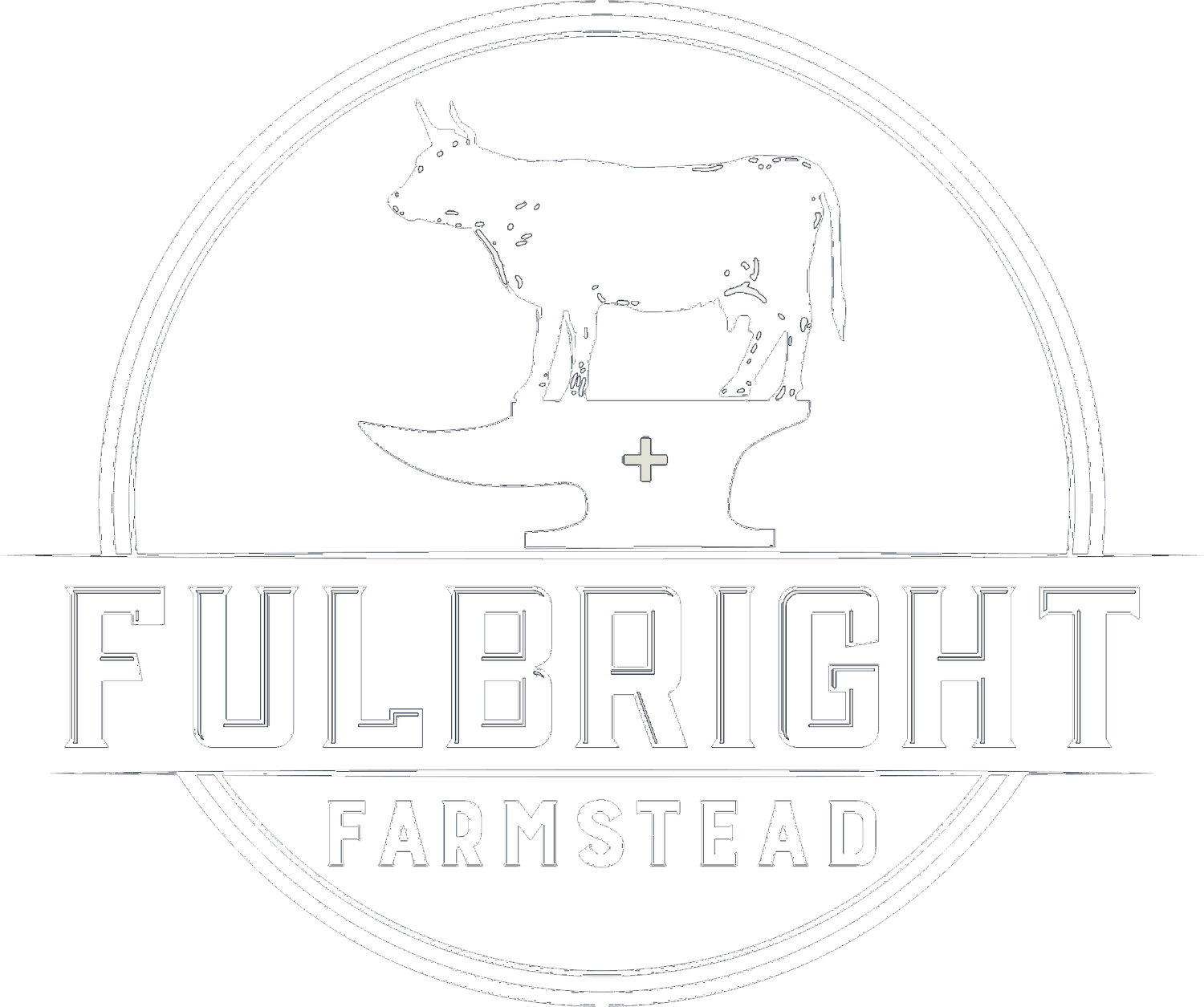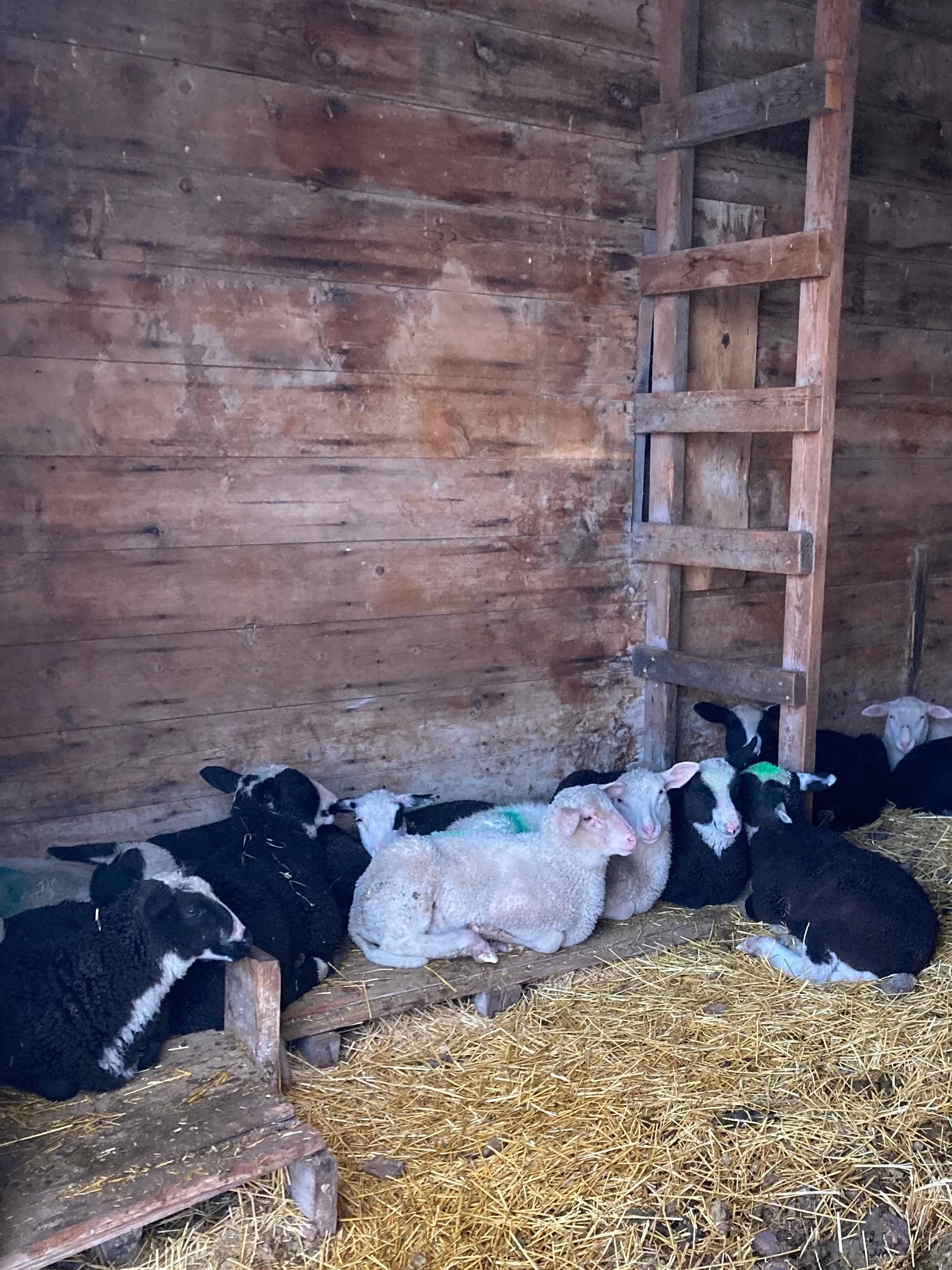The Most Important Thing You Can Do for Your Sheep’s Health
If I could give just one piece of advice to anyone raising sheep—whether you're a brand-new shepherd or adding sheep to your homestead—it would be this:
Observe them. Every day. On purpose.
There’s no high-tech gadget or supplement more powerful than your own eyes and instincts when it comes to keeping your flock healthy. Observation is the foundation of flock management, and when done well, it can mean the difference between catching a problem early or facing a full-blown crisis.
Recently, due to weather stress, something went through my flock. Several of my lambs were running fevers and coughing. But because I observe them every day, I was able to catch this early, treat the lambs showing symptoms and not lose anyone.
What Do You Look For?
At Fulbright Farmstead, our daily flock check isn’t fancy, but it’s consistent. Here’s what we watch for:
Appetite – Are they coming up to eat with the rest? A sheep that hangs back during feeding may not feel well.
Mobility – Are they walking evenly? Any limping or stiffness? Are they lagging behind the rest of the flock?
Posture & Behavior – Are they alert and chewing cud? Or standing hunched, separate, or lethargic?
Eyes — Are eyes bright and shiny, or dull and sunk?
Nose and Rear End – Any discharge, staining, or swelling? These small signs often speak volumes.
Fleece & Body Condition – Is anyone looking scruffy, thin, or losing fleece?
Head & ears — Is someone standing with their head hanging low, ears drooping?
You don’t have to run a full health exam every day. Instead, train your eye over time. You'll start to notice when something is just a little “off”—and that’s when early intervention is most effective.
Why Observation Beats Reaction
Sheep are prey animals. They’re hardwired to hide signs of illness until it’s advanced. That’s why a quiet daily check-in matters. By the time a sheep is obviously sick, you're already playing catch-up and it may be too late.
I’ve found that most of the problems we've been able to resolve because we noticed something early. The shepherd's presence is preventative care.
Make It a Ritual
For us, observation is a twice daily ritual. Because we don’t have a livestock guardian dog, we put our sheep in the corral every night and let them out to pasture every morning. During morning and evening chores, we walk among the flock slowly, giving them time to come to us (or avoid us, which is also telling). If something seems off, we pause. We might put hands on a ewe or make a note to check back in the evening.
If you’re new to sheep, I recommend keeping a little notebook or using your phone to jot down anything you notice. Patterns matter. A sheep that’s a little slow today and slower tomorrow might need help before the weekend.
The Shepherd’s Superpower
In our experience, observation is the shepherd’s superpower. You don’t need to be a vet. You just need to know your sheep. And that kind of knowing only comes from time spent watching, listening, and learning from them.
Whether you're raising sheep for milk, meat, wool—or the sheer joy of it—this one daily habit can improve your flock’s health, reduce your vet bills, and deepen your connection to the land and animals you care for.
If you're curious to see what this looks like in action, come visit our flock in person. We offer farmstay experiences where you can join us for morning chores and learn by doing. Or if you’re looking to start your own flock, check out our available dairy sheep.
We love sharing what we’ve learned, one sheep at a time.
Related Content You Might Enjoy
🧀 Making Queso Fresco from Sheep Milk
Discover the joy of transforming fresh sheep milk into delicious Queso Fresco cheese.🏡 Experience Farm Life: Our Farmstay Airbnb
Learn about our unique farmstay where guests can immerse themselves in life on a homestead.🐑 Got the sheep but need help with training?
Learn how I trained a yearling ewe to the milking stand in only four days here at Fulbright Farmstead.
Pin it for later


